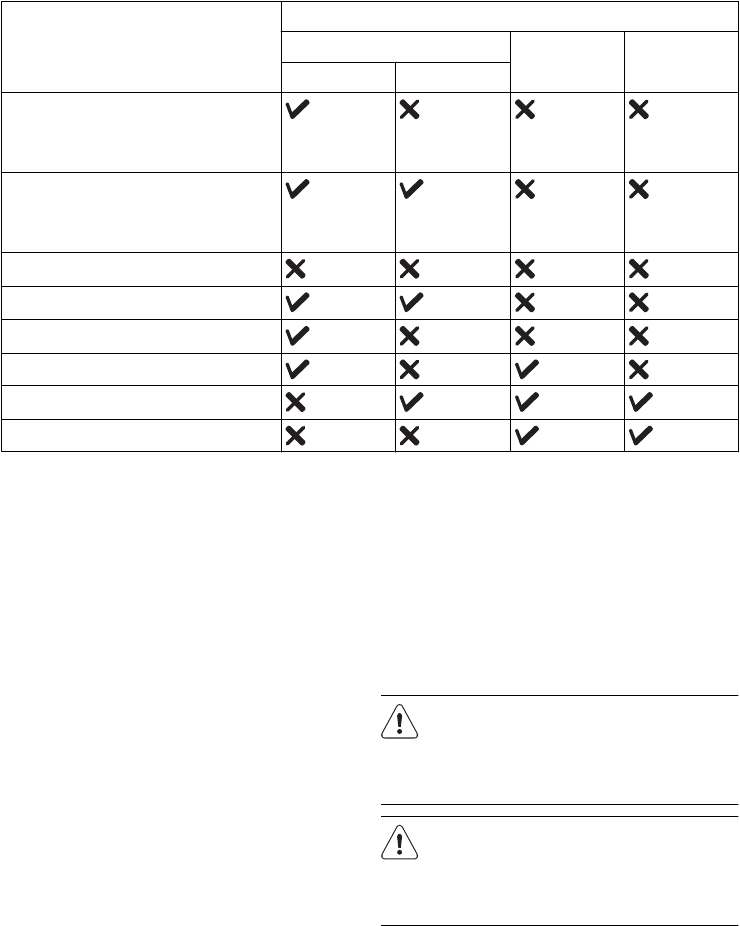
Type of ovenware Operating mode
Microwave Grill Grill +
Microwave
Defrosting Cooking
Plastic dishes
Keep the manufacturer’s
instructions in mind!)
Heat resistant to
100°C
Plastic dishes
Keep the manufacturer’s
instructions in mind!)
Heat resistant to
250°C
Plastic films
3)
Plastic film for food
Plastic films
3)
Cellophane
Paper, cardboard, parchment
4)
Aluminium foil
Aluminium wrappings
5)
Accessories (rectangular rack)
1) Without any gold or silver leaf edging; no lead crystal.
2) Keep the manufacturer’s instructions in mind!
3) Do not use metal clips for closing bags. Make holes in the bags. Use the films only to cover the food.
4) Do not use paper plates.
5) Only shallow aluminium containers without lids/tops. The aluminium cannot come into contact with the cavity
walls.
Food safety
• Do not heat food in a can in the microwave
oven. Always remove the food to a suitable
container.
• Deep fat frying should not be done in the
microwave oven, because the fat
temperature cannot be controlled,
hazardous situations can result.
• Popcorn may be prepared in the
microwave oven, but only in special
packages or utensils designed specifically
for this purpose. This cooking operation
should never be unattended.
• Pierce foods with nonporous skins or
membranes to prevent steam buildup and
bursting. Apples, potatoes, chicken livers,
and egg yolks are examples of items that
should be pierced.
• The contents of feeding bottles and baby
food jars are to be stirred or shaken and the
temperature is to be checked before
consumption, in order to avoid burns.
Warning! Liquids or other foods
must not be heated in sealed
containers since they are liable to
explode.
Warning! Microwave heating of
beverages can result in delayed
eruptive boiling, therefore care must
be taken when handling the container.
5


















